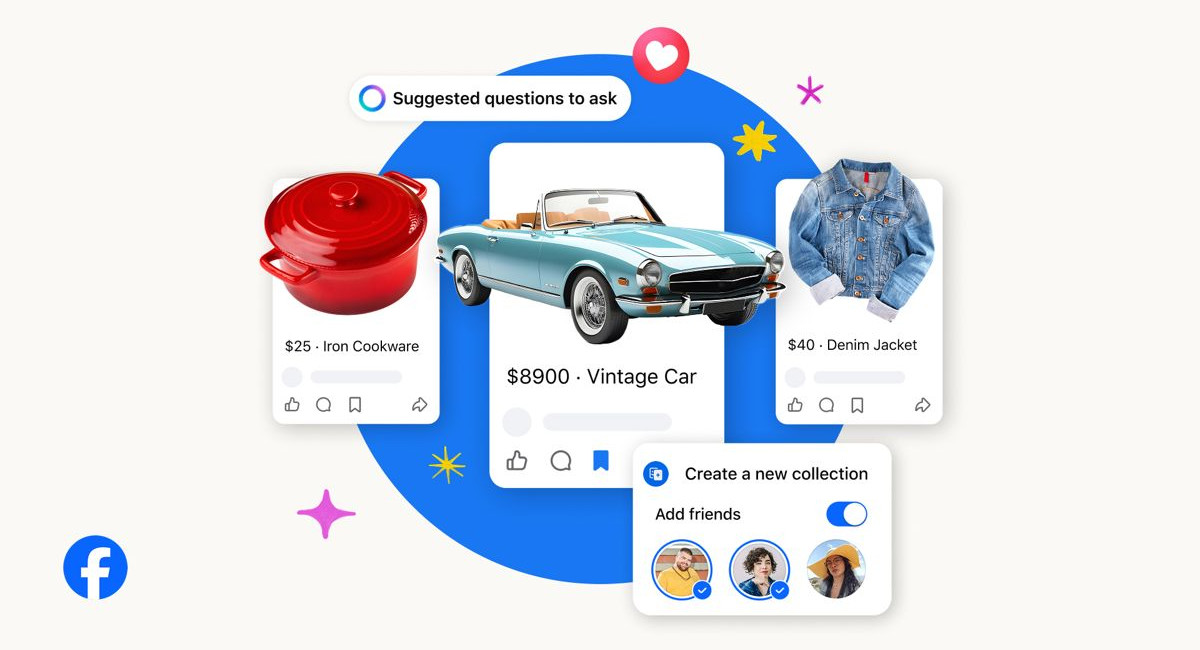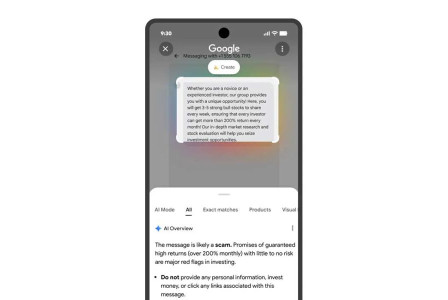SEARCH
Facebook Marketplace gets a smart makeover

SHARE IT
Meta is rolling out one of the biggest updates Facebook Marketplace has seen in years, pushing the platform deeper into social shopping and layering in new AI-powered tools meant to simplify the buying experience. The company says the overhaul aims to make Marketplace feel more interactive, more intuitive, and much more in tune with the way people actually shop online today.
At the heart of the update is a renewed emphasis on shopping as a social activity. Meta is introducing a feature called Collections, which allows users to gather Marketplace listings into neatly curated groups. That could mean saving potential apartment rentals, compiling a wishlist of vintage jackets, or collecting furniture ideas for a new home. What makes Collections especially compelling is the option to invite friends to view them—and even collaborate. Users can decide whether these groups stay private or go public and share them across Feed, Messenger, or WhatsApp. The goal is to recreate the feeling of browsing with friends, even when you’re not physically together.
Meta is also experimenting with a tool that takes this social angle a step further: collaborative buying. Rather than screenshotting listings or forwarding links back and forth, you can now pull a friend directly into your conversation with a seller. Whether you’re co-purchasing something, looking for backup on price negotiations, or just wanting a second opinion on an item, this new setup streamlines the process. It’s designed to eliminate the clunky back-and-forth that often comes with coordinating a purchase between several people.
Another update brings reactions and comments to individual listings. Until now, Marketplace interactions were mostly quiet exchanges between buyer and seller. By adding the ability to react or leave comments on an item, Meta is hoping to infuse Marketplace with a more community-driven atmosphere. These social cues can help signal whether a listing is promising—or questionable—before you even open a chat. And, as with most things on Facebook, your interactions will guide the algorithm, shaping what items you see more often.
To make the actual moment of purchase less stressful, Meta is improving the checkout flow for shipped items. Buyers will now get full transparency before confirming a payment, seeing upfront the complete cost with shipping fees and taxes included. The system will also send clearer notifications as the order status changes, something longtime Marketplace shoppers have been asking for. The update aims to make Marketplace feel closer to a traditional e-commerce experience while preserving its casual, community-driven foundation.
But the biggest upgrades may be the ones happening behind the scenes, powered by Meta AI. When you open a chat with a seller, you’ll now see a “Suggested questions to ask” prompt. Tapping it triggers Meta’s AI to scan the listing’s details—as well as any previous conversation—and generate relevant questions you might otherwise overlook. It could help you remember to ask about hidden defects, shipping flexibility, or warranty details. Meta says the feature is designed not just to save time, but to help buyers make more informed decisions.
The company is also testing a specialized AI feature tailored for one of Marketplace’s most searched categories: cars. The tool compiles key information such as engine specs, safety ratings, cargo capacity, seating configurations, transmission type, price trends, and even snippets from reviews. For anyone who has spent hours bouncing between car-review websites before making a used-car purchase, the ability to access these insights directly within Marketplace could be a major upgrade.
Meta hasn’t forgotten fashion, one of Marketplace’s most active communities. With vintage and secondhand clothing ranking just behind home décor in popularity, Meta is expanding its inventory by pulling in listings from partners like eBay and Poshmark. These items appear alongside regular Marketplace posts but carry a small icon to clarify their origin. The integration signals Meta’s intent to become a central hub for secondhand shopping, not just a local buy-and-sell tool.
MORE NEWS FOR YOU

 Help & Support
Help & Support 

